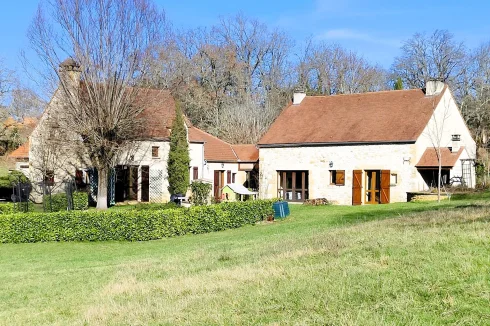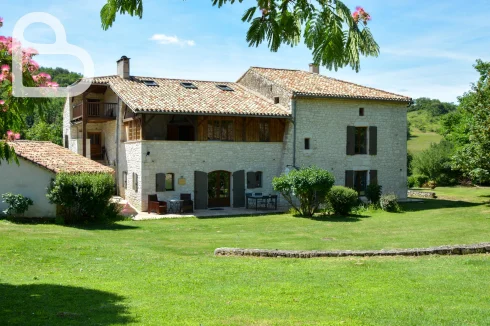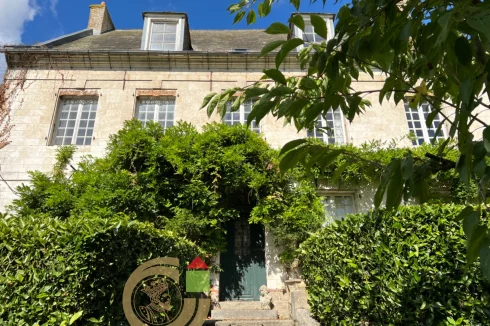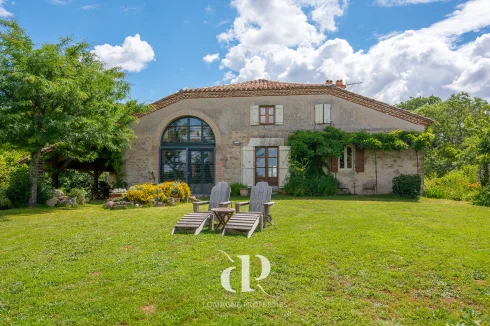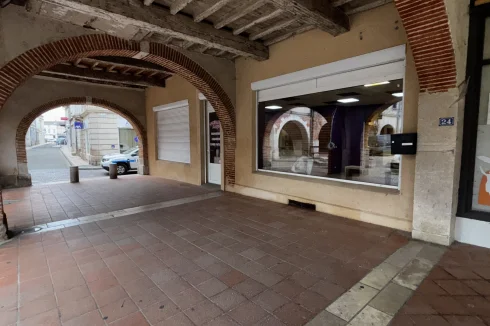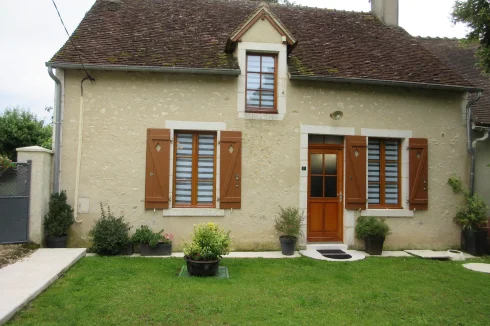French Farm Sales and the Role of SAFER
Friday 15 January 2010
The French land agency 'SAFER' has a right of first purchase on a great deal of rural property in France, so what are the rules that apply?
SAFER (Société d'aménagement foncier et d'établissement rural) is a body you will certainly come across if you are seeking to buy property in the French countryside.
This government agency has the right of first purchase on most rural property that comes onto the market in France.
So although you may think you have sealed the deal when you sign the sale contract with your seller, in fact the property is not quite yours until SAFER have had their say.
The right of first refusal by SAFER is called the droit de pre-emption.
This is effectively a right of substitution, in which the original buyer of the property is obliged to give way to the public agency.
In the process of purchase of the property, ‘purging’ of the rights of SAFER is carried out by the notaire, whose responsibility it is to write to SAFER asking them if they want to buy the property.
SAFER have two months from the date they are notified of the details of the prospective sale to make up their mind. If you are in a hurry, there is an ‘express’ service to get their response, provided you are prepared to pay extra for it, although SAFER are not always prepared to accept the service.
Within each department there is a minimal land area determined by the prefecture below which SAFER does not have the right of pre-emption. However, in many areas of the country this threshold is very low, so a small house in the country with an acre of land may still be subject to the pre-emption process!
In practice, although SAFER are omnipresent in the sale of strictly agricultural land and buildings, the vast majority of other rural property sales go through without them showing any interest.
Not Compulsory Purchase
Contrary to popular belief, their right of first purchase is not a right of expropriation; SAFER do not have powers of compulsory purchase.
SAFER can only pre-empt at the sale price and on the other terms stated in the sale contract. However, if they disagree with the price, then they can bring a legal action in the courts for a judge to make a decision on the sale price. If the owner is in a hurry to sell, it does then put heavy pressure on them to deal with SAFER, or face years of litigation.
More often than not, a negotiated price is agreed.
Indeed, it is not unusual for SAFER to be approached by the farmer in the first instance, in the hope they will purchase their land.
The grounds on which SAFER can use their right of pre-emption really gives them carte blanche to use it when they wish, provided the purchase is in the interests of the maintenance and development of the farming fraternity or the local environment.
Accordingly, SAFER are not going to intervene to buy up land for an out-of-town shopping centre. (This is something the local mairie may do, but more about that on another occasion.)
Neither are they always able to intervene in the sale of large rural estates, if only due to a lack of budgetary resources. This is because SAFER have to buy all or nothing; they cannot pick and choose which bits of land in the sale contract they want to buy.
Ironically, therefore, it is often the largest land sales that escape being purchased by SAFER, simply because they are too rich for them!
The right of pre-emption of woodland is also specifically outside of their powers.
(ED Note: SAFER powers increased since 2015 allowing them to buy only part of the property as well as woodland, in certain circumstances).
Local Farmers Get the Pick
Ultimately, the priority afforded to farmers does often translate into a priority to local farmers, if only because they are on the ground, and in the know.
Nevertheless, this is not universally the case. A great deal of agricultural land in France is sold to international buyers, very often because the price demanded by the seller is higher than local farmers would wish to pay.
In other cases, it has been simply because SAFER cannot afford to get between buyer and seller, or there is no local interest. Thus, given the current crisis among French wine growers, buying a vineyard in certain areas of France would probably not be too much of a problem!
When farmland and property comes on the market, SAFER may pre-empt on the sale of the whole farm, but when local farmers have taken the pick of what they want, what is left will then be put up for resale; perhaps the farmhouse itself with a few acres of land.
SAFER also act to avoid speculative development, notably to stop developers buying up agricultural land for development. SAFER frequently rage in the French press about the continued loss of agricultural land to other uses.
This is an objective they achieve with mixed success, for even they have to yield against a farmer who wishes to sell for other uses that have a greater value than agricultural land, and a planning authority who are willing to grant planning permission for that use.
Many critics also consider that SAFER are not slow themselves to act in a speculative manner. Local farmers who may not be so savvy about the market as SAFER, and who do not want to face the prospect of legal proceedings over the sale price, are persuaded to sell to them for a price below that may well be below the true value of the market, which SAFER then later sell on at a higher price.
Process Lacks Transparency
Moreover, the process through which SAFER use their droit de premption lacks a degree of transparency, to say the least.
The process often begins by an official notification to the local council and farming community of the prospective sale.
If there is interest in some or all of the land by an existing farmer, SAFER may then intervene to buy the land or property using their right of pre-emption, and then sell some or all of it on to one or more local farmers who may have expressed an interest in buying it.
The decision as to just who has the strongest case for the land is decided by a local committee (although for some transactions it is delegated to an official). As you might imagine, there is a rumour mill that circulates about just how these committees (and officials) make their decisions!
All applicants are notified as to the reasons why the committee came to their decision, but only in the most general terms. Accusations of toadyism are widespread, and there are occasional cases in the French courts about the manner in which land and property has been purchased and later resold by SAFER.
POSTSCRIPT May 2020: See our article on possible ways to get around the SAFER right of pre-emption at SAFER Droit de Pre-emption
We would be interested in hearing from anyone who has had dealings with SAFER. You can e-mail us at [email protected].
You can read more in our guide to Buying Property in France.
Thank you for showing an interest in our News section.
Our News section is no longer being published although our catalogue of articles remains in place.
If you found our News useful, please have a look at France Insider, our subscription based News service with in-depth analysis, or our authoritative Guides to France.
If you require advice and assistance with the purchase of French property and moving to France, then take a look at the France Insider Property Clinic.
